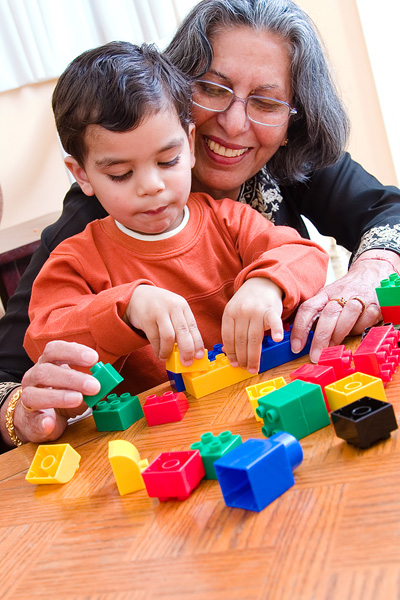By Nadia Shah

Columnist, In-Law Corner
The death of a loved one often comes as a shock. Parents are grieving the loss of their son or daughter, siblings are grieving their brother or sister, and you are grieving the loss of your spouse. It’s without a doubt one of the most stressful and painful times for everyone involved. After the initial shock passes, in-law relationship concerns will eventually arise. You may wonder if your relationship with your in-laws changes. Unfortunately, the answer is: that depends.
When women in the South Asian culture marry, we marry into our husband’s family. Our husband’s family becomes our family. Some South Asians can even take this to the extreme and imply the daughter is no longer part of her birth family, resulting in abandonment if her spouse passes away.

If you live in South Asia, your status as a widow may be apparent because often you are culturally required to wear white. Some widows may even be blamed for their spouse’s death. Approximately 15,000 widows live in the streets of Vrindavan and most live in poverty, having been abandoned by their families. There are cultural differences between the various South Asian countries and religions that exist in the region.
Circumstances may be different if you live or grew up in the West. Hopefully your concerns aren’t abandonment and poverty like many of our South Asian sisters back home. Rather, you might be wondering if there will be changes to your relationship with the in-laws.
What was your relationship with your in-laws before your spouse passed away? And if you have kids, what was your in-laws relationship with them? If you always had a close relationship, then most likely some level of closeness will continue. If you didn’t talk to your in-laws much before, then most likely that won’t change either. Try to avoid expecting anything different because you may be setting yourself up for disappointment.
We do have to consider another aspect. We are part of a culture that emphasizes family responsibility. If you are a male and you lose your wife, you may feel obligated (as part of the culture) to step up and take more of an active role in caring for your in-laws. The same may apply for South Asian females feeling obligated to take care of their in-laws. Imagine living with your in-laws and being their sole caregiver in their elderly age. It probably wouldn’t be best to suddenly abandon them and your cultural (and maybe moral) duty.
 If kids are involved, your in-laws are most likely going to want to be involved. Even if you don’t have the best relationship with your in-laws, remind yourself not to interfere with your children’s relationship with them. Your kids may be the only way your in-laws feel connected to their kid (your late spouse), and your kids probably don’t want to stop seeing their grandparents.
If kids are involved, your in-laws are most likely going to want to be involved. Even if you don’t have the best relationship with your in-laws, remind yourself not to interfere with your children’s relationship with them. Your kids may be the only way your in-laws feel connected to their kid (your late spouse), and your kids probably don’t want to stop seeing their grandparents.
After the initial devastation passes a bit, the subject of seeing your in-laws may come up. Some may find it comforting to see their in-laws and others may find it too hard. Desis are all about family and community support so most in-laws will be around or in-touch for awhile. Eventually the interactions may become less and less, possibly even stopping. What you choose to do depends on what’s best for you. It would be best to be upfront about what you feel since you and your in-laws (and kids if you have them) are probably experiencing the most devastation. Discussing your feelings and choices may help avoid hurt feelings. I know desis prefer indirect communication but sometimes direct communication can have its benefits.
Eventually a widower/widow may choose to remarry. If you are still in touch with your in-laws, do you invite them or ask them for their blessing? It depends. If you truly considered your late spouse’s family as your OWN family, then you may want them there for your wedding or you may want to at least tell them that you are getting remarried. They may be a bit hurt in hearing about your remarriage but if they consider you a daughter or son, then seeing you happy will make them happy also. Make sure whatever choice you make is okayed by your fiancé because it is his/her day also.
A South Asian male acquaintance asked his late wife’s in-laws for their blessings which they appreciated. They don’t necessarily need to be at the wedding to avoid awkwardness for the new wife-to-be but at least they feel their late daughter was respected and honored. But of course, you have to do what feels right for you and your fiancé.
Only those who have lost a spouse will truly know what it feels like or what issues arose for them. These are just some of the many considerations. Other unexpected discussion with the in-laws will come up such as what to do with the loved one’s items.
Whatever interactions occur with the in-laws post-loss, always remember that you need to care for yourself and your kids and do what’s best for all of you, even if that means hurt feelings. You never stop missing a loved one that has passed but you are strong enough to keep living.
About Nadia Shah:
As a Licensed Therapist (LCSW) and a daughter-in-law, I want to provide a forum where we can share our experiences. My wish is that we try to give our challenges a positive spin. I encourage you to visit the Forum to post about your experiences, read about others, and respond with support, advice, prayers, and hope. Frequently I will respond with my take on posts, articles on in-law relationships, and my own personal experiences. Follow her on twitter @desiinlaws and online at: Southasianinlaws.com
What other issues come up with in-laws in losing a spouse? Share your thoughts with us below.



There are no comments
Add yours